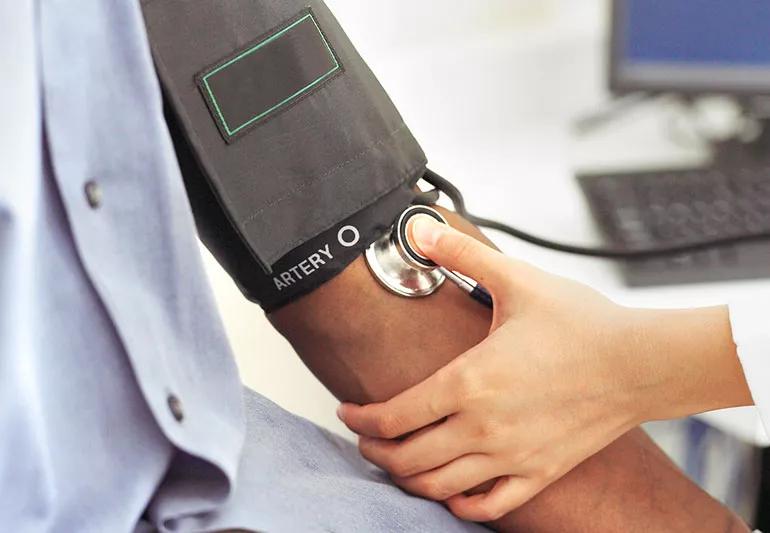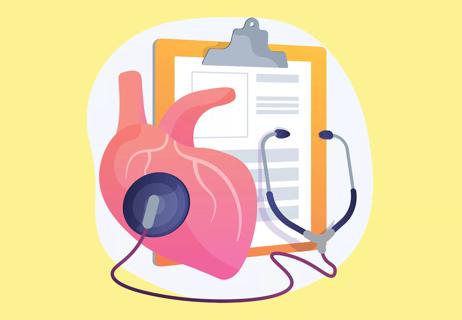Advertisement
The answer you should know straight from a cardiologist

A: According to cardiologist Steven Nissen, MD, it’s both reasonable and recommended to have an annual physical examination from a primary care physician when you get into middle age.
Advertisement
Cleveland Clinic is a non-profit academic medical center. Advertising on our site helps support our mission. We do not endorse non-Cleveland Clinic products or services. Policy
However, that doesn’t also mean that you should start testing (let alone regularly) for heart-related concerns.
“Although it’s natural that as you age you’ll start to wonder about your heart health, it isn’t the best route to worry unnecessarily either if you aren’t having any specific, concerning symptoms,” he says.
In fact, Dr. Nissen advises you to talk with your primary care physician about this question first before you see a heart specialist for any reason.
“I strongly warn people against going directly to a cardiologist and undergoing routine cardiac testing unless you are experiencing symptoms such as chest pain,” he says. “Otherwise, you could end up undergoing a lot of unnecessary testing that may lead to unnecessary procedures.”
These are not recommended without concerning symptoms.
“Let’s say we perform a treadmill stress test in an otherwise healthy person and the results are abnormal — it’s quite likely that the test is a false positive,” Dr. Nissen says. “A false positive test is when the results indicate a condition or finding that does not really exist. Undergoing unnecessary treatments for something that isn’t there can be just as bad for you, if not worse.”
Similarly, many people ask about getting a heart scan to look for calcium problems.
Advertisement
“If you’re otherwise healthy, we don’t recommend heart scans either,” Dr. Nissen emphasizes. “It involves significant radiation and is not in the best interest of most people to have this test.”
Dr. Nissen recommends going other routes first before seeing a cardiologist or getting heart-related tests done. He says the only heart-related tests appropriate for most people who aren’t experiencing troublesome symptoms are those that measure your blood cholesterol levels, blood sugar levels and blood pressure.
“These blood tests are in fact very important numbers to know and you should have these done annually,” he says. “If the numbers show concerning information, they’ll prompt you to make changes to adjust your diet and lifestyle to start proactively living in a more heart-healthy way. These tests may also indicate a need to start cholesterol or BP medications.”
“Cultivating good health habits is a much better approach in the long run than undergoing routine testing to look for heart conditions that may or may not exist,” Dr. Nissen recommends. “It’s never too late to start following a heart-healthy diet, exercise regularly, avoid stress and get better sleep — all excellent ways to keep your heart in good shape.”
Your best health is always our goal and we’ll always recommend what we think is your best path forward, especially when it comes to what keeps you ticking through your life, he adds.
If you’re experiencing chest pain, palpitations, shortness of breath or feeling faint, you should call your doctor or go to the emergency room.
Advertisement
Learn more about our editorial process.
Advertisement

If you have a family history of heart disease, you should check in with this specialist

Information you need, on and off the field

How to get the most out of your appointment

Up to 30% of people who take the cholesterol-lowering medication feel aches and soreness

Though it was once used as a cholesterol-lowering medication, niacin is no longer a recommended treatment

Deep breathing, yoga and meditation are just some ways to bring your heart rate down right away

Lifestyle changes can help strengthen your heart so it doesn’t have to work as hard when your body is at rest

Studies show intermittent fasting may help you lose weight, improve blood pressure and more

If you’re feeling short of breath, sleep can be tough — propping yourself up or sleeping on your side may help

If you fear the unknown or find yourself needing reassurance often, you may identify with this attachment style

If you’re looking to boost your gut health, it’s better to get fiber from whole foods